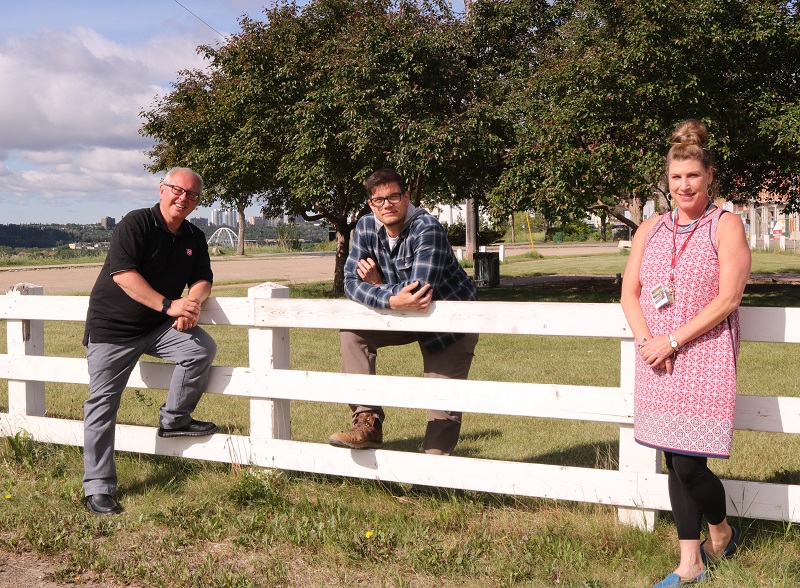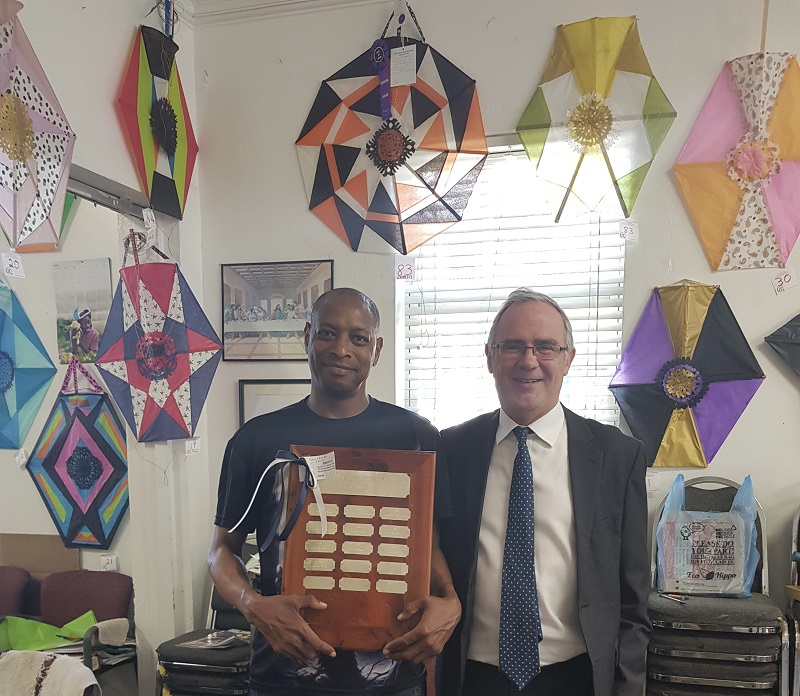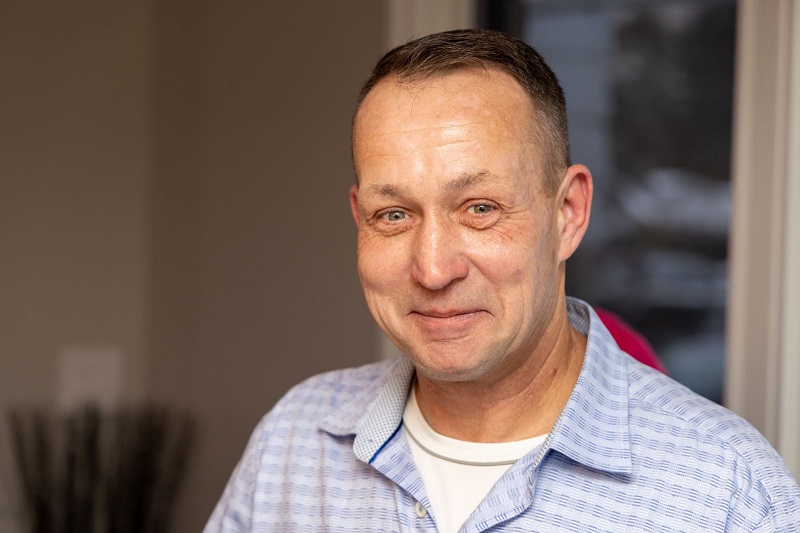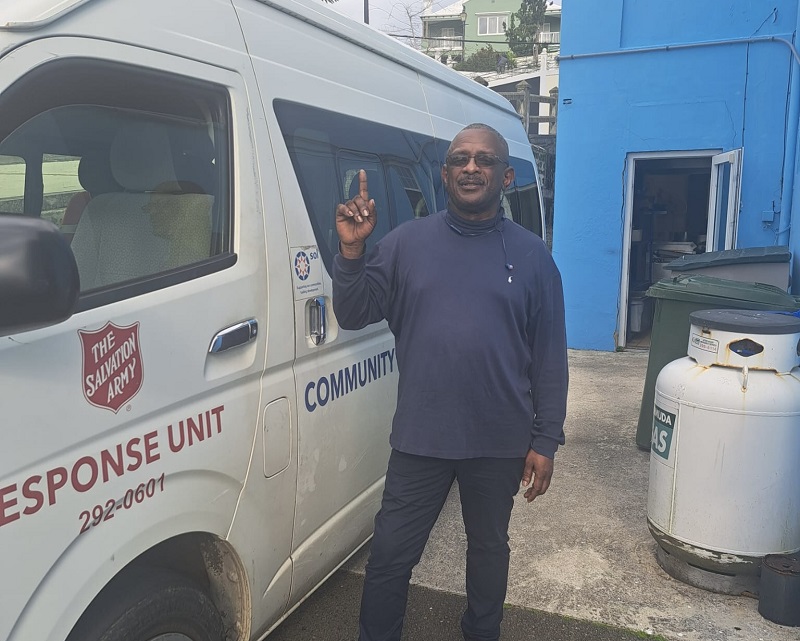Ryan’s Journey

At 28 years old, Ryan is an upgrading student with a bright future ahead of him. However, the classroom hasn’t always been an environment that’s brought out the best in him.
As a child, Ryan dealt with bullying at school. Compounded with the toll his parents’ divorce had on him, he often felt depressed.
Growing up he began losing himself in video games as a way to escape his struggles, and this is when the early signs of addiction revealed themselves.
“I just got really depressed and eventually, after graduating from high school, I had lots of money from working on the rigs and I found comfort in doing drugs and drinking all the time,” Ryan explains. “And it got to the point where I couldn’t even keep my job.”
Ryan’s drug of choice: crystal meth.
I would say that going through the program is way more effective than trying to do it on your own
The first time Ryan tried to get clean was at the age of 21. Coming from a small town, he was unaware of the resources available to someone like him going through addiction.
At this point in his life, he had no intentions of going to rehab. However, as a way to keep family and friends off his back, he agreed to detox away from his hometown in Edmonton. It was a process that would lead him to The Salvation Army’s Addiction and Residential Centre (ARC).
“I quit once on my own, relapsed, and then I went through the program. I would say that going through the program is way more effective than trying to do it on your own, that’s for sure,” Ryan says.
The journey to recovery took six years and a rock bottom moment that had Ryan ultimately deciding that he would pick up the pieces of his life and put them back together.
“It’s one of the best things I’ve decided to do. I wish I would have done it so much earlier, but that’s just how these things work out,” Ryan says.
He began his treatment at The Salvation Army’s Transformations Addiction Recovery Program, a four-month live-in program at the ARC, similar to the 12-step program, and uses module-based learning, group counselling, and individual counselling.
At the age of 25, Ryan completed his four months at Transformations program and transitioned into The Salvation Army’s Keystone.
Keystone is a one-year, after-care recovery program where residents live together in a community. They live drug and alcohol-free while working towards personal goals like work and education. Keystone helps men transition back into society and provides guidance to help each person make the changes necessary to achieve their aspirations.
“He took his recovery seriously,” Chaplin Doug says. “He’s always been growing forward. He would be the first to say that he’s not entirely there yet, but he’s making progress in the direction that he wants to go.”
As Chaplain, Doug’s chief role is providing spiritual and emotional care to residents, staff, families, and volunteers. The Chaplain strives to be accessible and journey with people as they travel the road of life.
“In their life experience, they know how to handle defeat and distress. They know how to handle all the screw-ups in life,” explains Chaplain Doug. “But many of them don’t know how to celebrate the success, and because they don’t know how to celebrate, a lot of them will self-sabotage because they know how to handle the mistakes.”
Going to rehab is the easy part, and then finding your reasons to stay is hard
Overcoming addiction is one of the most challenging matters one can face in life, and many people will stumble before reaching sobriety. Many individuals healing from their addictions can have difficulty handling their success and finding it within themselves to stay clean.
“Going to rehab is the easy part, and then finding your reasons to stay is hard,” Ryan explains. “After you get out of rehab, and there are no more eyes on you, you can do what you want. The hardest part for me has been trying to find a way to get my confidence back.”
For Ryan, his confidence came back when his hard work started showing results. The goals he set for himself were clear and finally attainable, and he began to get excited about the future.
“While he was here, he started having an idea of what he wanted to do with his education and how he wanted to move on in his life,” Chaplain Doug says.
There was a moment for Ryan in recovery when he saw a couple of therapeutic students working alongside residents doing arts & crafts, as well as meditation to heal. He had a conversation with them that led to a moment of clarity. This is what he wanted to pursue with his life; he wanted to help others heal by using his creative side.
Ryan is now upgrading and preparing for an educational career at Norquest College as a therapeutic recreation professional. The program explores the impact of recreation and leisure on individual wellness. With the help of Chaplain Doug, Ryan was able to shadow recreational therapists Sara from Grace Manor, and Jonathon from Stepping Stone.
“Today, I have so many community sources to tap into; faces that I know, and they know me,” Ryan says.
It’s still not easy for Ryan. Recovery is now an everyday journey. It’s the shame that can be difficult to overcome, but his support system and self-confidence have him looking at his accomplishments with pride.
“I recommend The Salvation Army. Looking back on it now, it was some of the best times, like going camping with the guys, and doing activities like singing praise songs,” says Ryan. “My biggest thing for guys leaving the program is to try to stay connected because you can fall off really quick.”
It’s a full-circle moment for Ryan, who looks forward to volunteering once again for The Salvation Army, an army that has helped guide him to become the man he is today.
By Maria Silva
Pictured from left: Chaplain Doug, Ryan and Sarah



